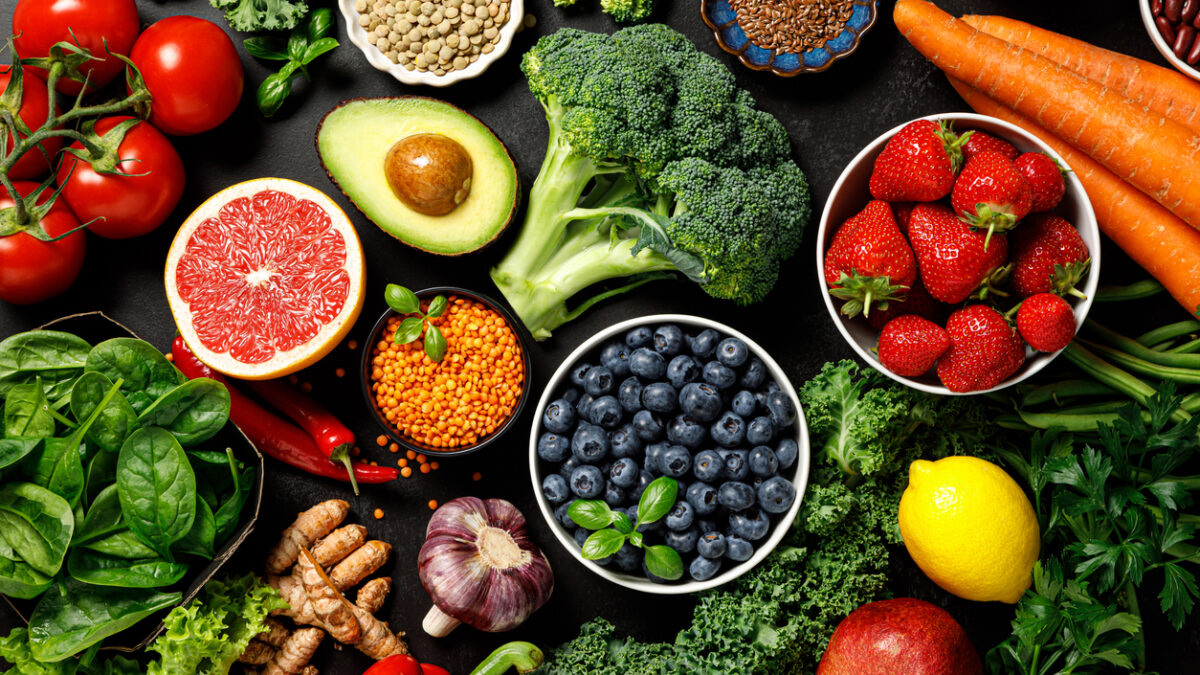Ah, the age-old question in the grocery store aisles – to go organic or not? The term “organic” has become a buzzword, but what does it really mean? Simply put, organic foods are grown without synthetic pesticides, herbicides or genetically modified organisms (GMOs). But how can you tell if something is organic? Look for the USDA Organic label – your golden ticket to a healthier choice. Now, let’s unravel the reasons to opt for organic when possible and discover the top fruits and veggies that deserve the organic spotlight, especially the infamous “dirty dozen.”
Reasons to Choose Organic
Reduced Exposure to Pesticides:
Organic farming avoids synthetic pesticides, reducing your exposure to potentially harmful chemicals. Choosing organic means prioritizing clean, pesticide-free produce.
No GMOs Here:
Organic foods are non-GMO, ensuring that your fruits and veggies are free from genetically modified organisms. It’s like choosing nature’s original recipe over a science experiment.
Support for Sustainable Agriculture:
Organic farming practices promote sustainability. By choosing organic, you’re contributing to a farming system that prioritizes soil health, biodiversity and long-term ecological balance.
Enhanced Nutrient Content:
Studies suggest that some organic foods may have higher nutrient levels. While the differences are often subtle, every extra bit of nutrition adds up for your overall well-being.
No Synthetic Hormones or Antibiotics:
Organic meat and dairy come from animals raised without synthetic hormones or antibiotics. Choosing organic in this category supports the humane treatment of animals and your own health.
Top Fruits and Veggies to Get Organic (The Dirty Dozen):
1. Strawberries: Strawberries often top the dirty dozen list due to high pesticide residue. Go organic to savor these sweet berries without the chemical cocktail.
2. Spinach: Leafy greens like spinach are fantastic for your health, but they can also harbor pesticides. Choose organic for a clean, nutrient-rich option.
3. Kale: Kale is a nutritional powerhouse, but it’s also a magnet for pesticides. Opt for organic kale to get the maximum health benefits.
4. Nectarines: These juicy fruits are on the dirty dozen list, so choosing organic nectarines ensures you enjoy their sweetness without unwanted chemicals.
5. Apples: An apple a day is delightful, but conventional apples can have pesticide residues. Go organic for a crisp, clean bite.
6. Grapes: Grapes, especially imported varieties, can have pesticide residues. Choose organic grapes for a worry-free snack.
7. Peaches: Sweet peaches might have a bitter side if conventionally grown. Opt for organic peaches to savor their natural sweetness.
8. Cherries: Cherries, with their vibrant color, can also carry pesticide residues. Go organic to indulge in these delicious summer treats.
9. Tomatoes: Tomatoes, a kitchen staple, are best enjoyed organic to avoid unnecessary pesticide exposure.
10. Bell Peppers: Bell peppers, whether red, green or yellow, are worth going organic to minimize pesticide intake.
11. Broccoli: Broccoli is a nutritional powerhouse, but conventionally grown broccoli might have significant pesticide residues. Opt for organic broccoli to enjoy its health benefits.
12. Cauliflower: Like broccoli, cauliflower is a fantastic vegetable, but choosing organic ensures a cleaner, pesticide-free option.
When possible, choosing organic means opting for cleaner, more sustainable options that contribute to your overall well-being. Especially when it comes to the list known as “the dirty dozen,” making the organic choice is like giving your body a VIP pass to the best, chemical-free produce. Next time you’re in the grocery store, consider going organic for a delicious and health-conscious journey through the world of fruits and veggies.





